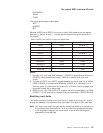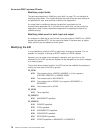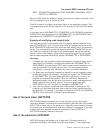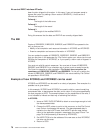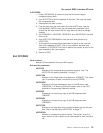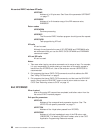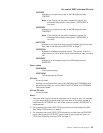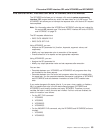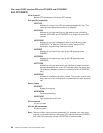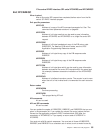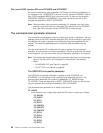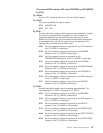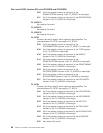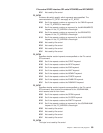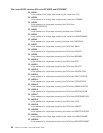
File control EXEC interface SPI exits XFCAREQ and XFCAREQC
The XFCAREQ exit allows you to intercept a file control system programming
interface (SPI) request before any action has been taken on it by file control. The
XFCAREQC exit allows you to intercept the response after a file control SPI request
has completed.
Note: For information about the XFCREQ and XFCREQC exits that are invoked for
file control API requests, see “File control EXEC interface API exits XFCREQ
and XFCREQC” on page 70.
The SPI requests affected are:
v EXEC CICS INQUIRE FILE
v EXEC CICS SET FILE.
Using XFCAREQ, you can:
v Analyze the SPI parameter list (function, keywords, argument values, and
responses)
v Modify any input parameter prior to execution of the request
v Prevent execution of a request and set appropriate responses.
Using XFCAREQC, you can:
v Analyze the SPI parameter list
v Modify any output parameter value and set responses after execution.
You can also:
v Pass data between your XFCAREQ and XFCAREQC exit programs when they
are invoked for the same request.
v Pass data between your file control exit programs when they are invoked within
the same task. You can pass data between successive invocations of XFCAREQ
and XFCAREQC and also between invocations of other EXEC-enabled user
exits.
If you make changes to file states (that is, if you open, close, enable, or disable a
file) it is possible that exits in the file state change program (XFCSREQ and
XFCSREQC) could modify situations set up by XFCAREQ. Therefore you must
consider the order in which the exits are invoked. If all four exits are enabled, the
order of invocation is as follows:
v For the SET FILE command:
1. XFCAREQ
2. XFCSREQ
3. XFCSREQC
4. XFCAREQC
v For the INQUIRE FILE command, only the XFCAREQ and XFCAREQC exits are
invoked:
1. XFCAREQ
2. XFCAREQC
File control EXEC interface SPI exits XFCAREQ and XFCAREQC
Chapter 1. Global user exit programs 83



